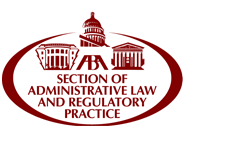About This Journal
The Administrative Law Review (ALR),
published since 1949, is an official
American Bar Association publication and the most widely distributed journal at WCL,with a circulation of more than 8,000. By way of comparison, Harvard Law Review has a circulation of 4,000 and The Yale Law Journal has a circulation of less than 3,000. Our
distribution numbers grant ALR a great deal of prestige and provide real exposure for the law professors, expert practitioners, judges, and staff members we publish in each book.
We are the leading scholarly authority on administrative law in the United States. For example, the editors of the Bluebook asked ALR to update and refine the Rule 14 administrative law citation guidelines in the 19th edition because of our expertise.
While ALR publishes scholarship about administrative law, we take a broad view of our subject matter and publish articles with both theoretical and practical applications. Put simply, administrative law is the study of the Executive Branch. It is the manner by which the President exercis
es direct control in the governing process. It has strong ties to
constitutional law, and major questions concerning due process, separation of powers, and standing reverberate throughout the administrative law field. Federal agencies (sometimes called the Fourth Branch of government) are the foundation of day-to-day
governance, and administrative law is consumed with the study of steadily expanding executive branch agencies such as the EPA, FDA, SEC, and IRS.
ALR staff members play a crucial role in the journal’s editorial process and write a note or comment of a publishable quality during their first year on the staff. Topically speaking, ALR members can write about almost any subject. Every activity in the United States is either regulated by the Executive Branch or not regulated by the Executive
Branch. Moreover, administrative law is at the center of what’s happening in today’s world, and our student comments reflect that reality. In the past year, ALR has approved comments for publication about whistleblower protections, international organizations,state–federal environmental regulations, football helmet regulations, and patent review
processes.
ALR has a staff of about ninety students and publishes four issues per year. Each year, ALR has at least one symposium about an exciting topic in administrative law. Our symposia have featured prominent speakers such as Supreme Court Justice Antonin Scalia and Professor Cass Sunstein of Harvard Law School, the most published, most
cited, and most prolific law professor in the world. ALR has a strong and dedicated faculty advisory board with professors who provide critical assistance in the comment-writing process. In addition, ALR alumni are a dedicated group who practice in major law firms and the highest levels of government, and provide crucial support for the law review and important contacts for our staff members during job searches.
Administrative and regulatory law is one of the primary reasons why D.C. is a top legal market in the United States. Most of the nation’s government agencies are based in Washington, and the city’s law firms deal and negotiate with those powerful agencies on a daily basis. If you plan to practice law in D.C., it is almost certain that administrative
law will factor importantly in your legal career.
